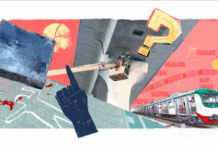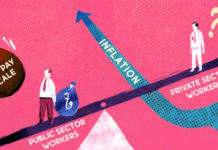Finds civil society initive; suggests ways to avoid tragedies
A group of civil society organisations yesterday launched an initiative to follow through on the commitments made in the aftermath of the Rana Plaza tragedy over the course of next one year.
Following the building collapse on April 24, the government, Bangladesh Garment Manufacturers and Exporters Association (BGMEA) and many development partners, international organisations and retailers made a host of pledges to the victims and to improve the way the country’s garment factories function.
The forum, founded by the Centre for Policy Dialogue (CPD) in partnership with 14 other organisations, intends to make sure that the promises get delivered.
“We want to make a difference this time. If this initiative can establish transparency and accountability, we will be able to redeem ourselves to some extent to those who died or were injured,” Mustafizur Rahman, executive director of CPD, said.
Rehman Sobhan, chairman of CPD, said the forum would put pressure on the government and other stakeholders so that “they discharge their responsibilities properly”.
“We, as a community, can at least try to ensure that incidents like this do not repeat.”
The think tank yesterday presented a report titled “100 Days of Rana Plaza Tragedy: A Report on Commitments and Delivery” at the CIRDAP auditorium in the city.
Following the tragedy that killed at least 1,132 workers and injured thousands, the government pledged to provide Tk 1 lakh to each of the deceased’s families and physiological treatment of two years for the injured workers and to rehabilitate the family members of the injured.
The BGMEA, separately, committed to raise Tk 25,000 from each of its member factories for the affected workers and provide employment of the disabled workers’ able-bodied family members.
But KG Moazzem, additional research director of CPD, pointed out that around 700 of the dead or missing workers’ families are yet to receive what they were promised by the Prime Minister and the BGMEA, four months after the tragedy.
“The hospitals, who earlier gave free treatment to the injured workers, have started to charge them. What happened to the government’s pledge for medical support?”
A number of workers of the ill-fated building, who were present at the event, said they received between Tk 16,000 and Tk 21,000.
Shabana Akhter, who was rescued three days after the building collapsed, said the doctors advised her to take rest for at least six months.
“I can’t even afford to buy medicine now. We were told that we would be given four months’ salary, but we have so far received only a month’s.”
Moazzem added that the forum aims to fight for the rights of the victims such as Akhter.
Montu Ghosh, a lawyer and labour rights activist, said the promises must be turned into actions.
BNP Lawmaker Syeda Ashifa Ashrafi Papiya urged the garment owners to set up hospitals for the workers “instead of presenting gifts to politicians”.
Wazed Ali Khan of the Bangladesh Institute of Labour Studies said the injured workers and the families of the dead workers have to be given compensation based on the annual loss of earnings.
“Tk 1-2 lakh is nothing. Besides, special programmes have to be taken to rehabilitate the injured workers.”
Hamida Hossain, chairman of Ain O Shalish Kendra, called for a framework such that the workers and trade unions can be involved in the monitoring of the promises.
Architect Abu Sayed Ahmed said 90 percent of the buildings in the country were not built following due procedures. “Professionals have to be given the task of designing the buildings.”
Zillul Hye Razi, trade adviser to the European Union delegation to Bangladesh, said the country’s garment sector would have to be careful about labour rights and working conditions as the EU would be closely watching them throughout 2014.
Badiul Alam Majumdar, secretary of Shujan, said the political power and the business power have merged into a power that was least bothered about following laws.
Amir Khosru Mahmud Chowdhury, a former commerce minister, said the government agencies did not play its due role irrespective of the party in power.
Anis Ud Dowla, a former president of Metropolitan Chamber of Commerce and Industry, said the collapse of the building was an issue of bad governance.
Commerce Minister GM Quader also admitted to the lack of good governance, which he deems to be a “major problem” for the country.
Debapriya Bhattacharya, a distinguished fellow of CPD, moderated the programme.
The Institute of Architects, Bangladesh, Ain of Salish Kendra, Ahsania Mission, ActionAid Bangladesh, Gono Shakkhorota Abhijan, Transparency International Bangladesh, Nari Paksha, Nijera Kori, Bangladesh Environmental Lawyers Association, Bangladesh Legal Aid and Services Trust, Manusher Jonno Foundation, Shushashoner Jonno Shunagorik, Prothom Alo and The Daily Star, are the initiative’s partners.
Source: The Daily Star










